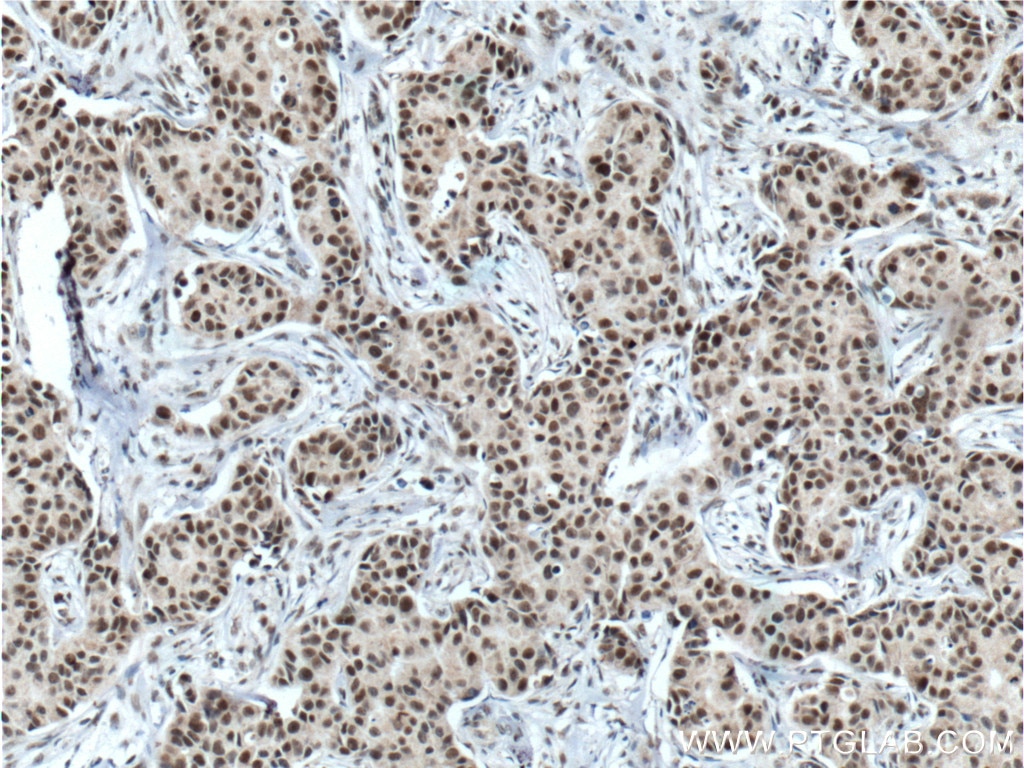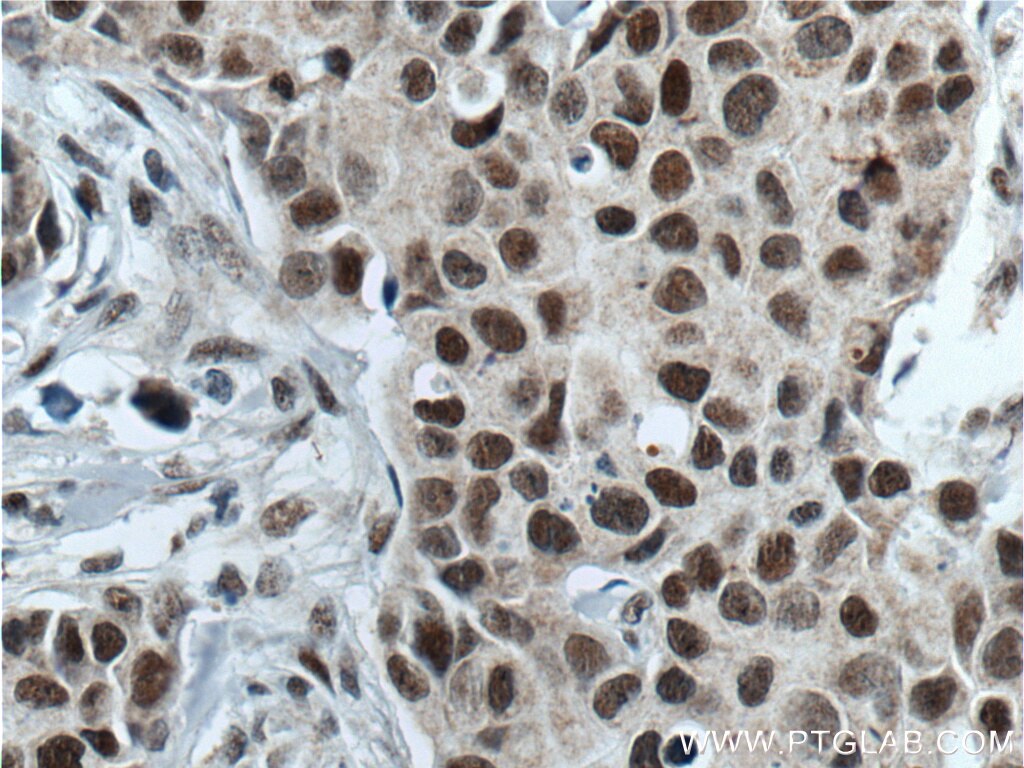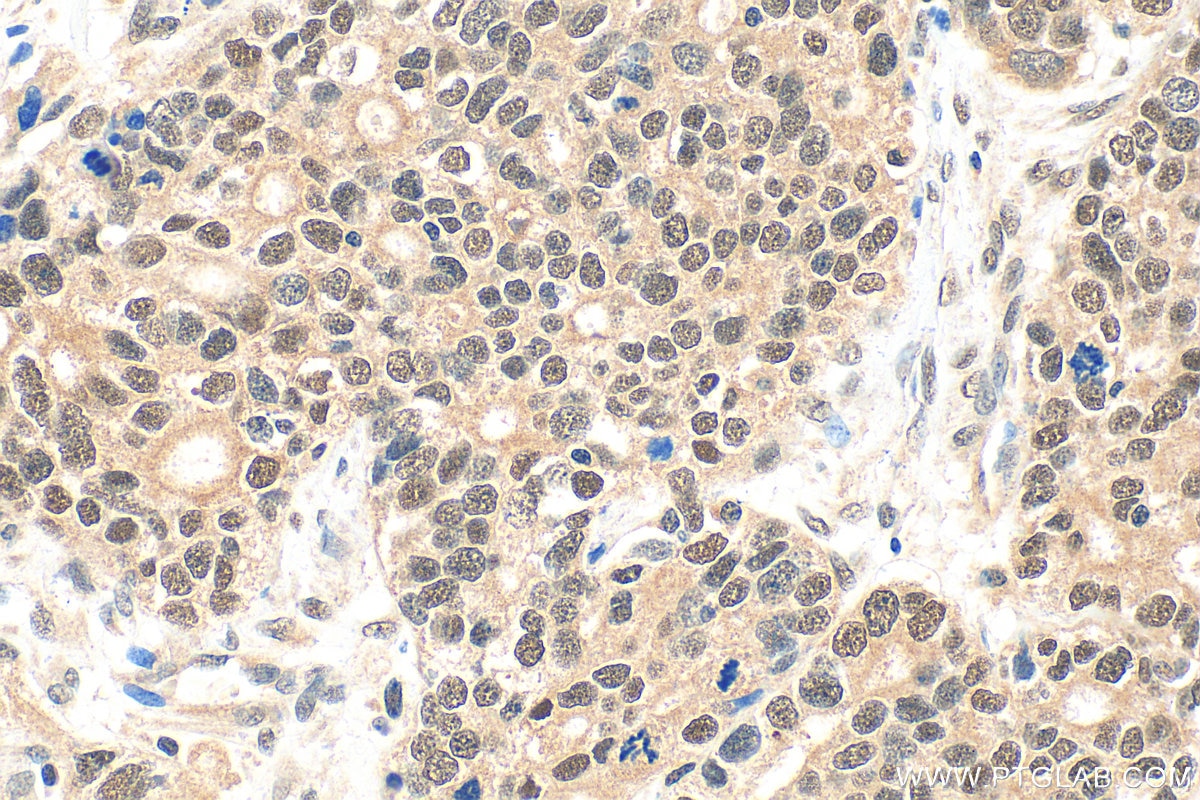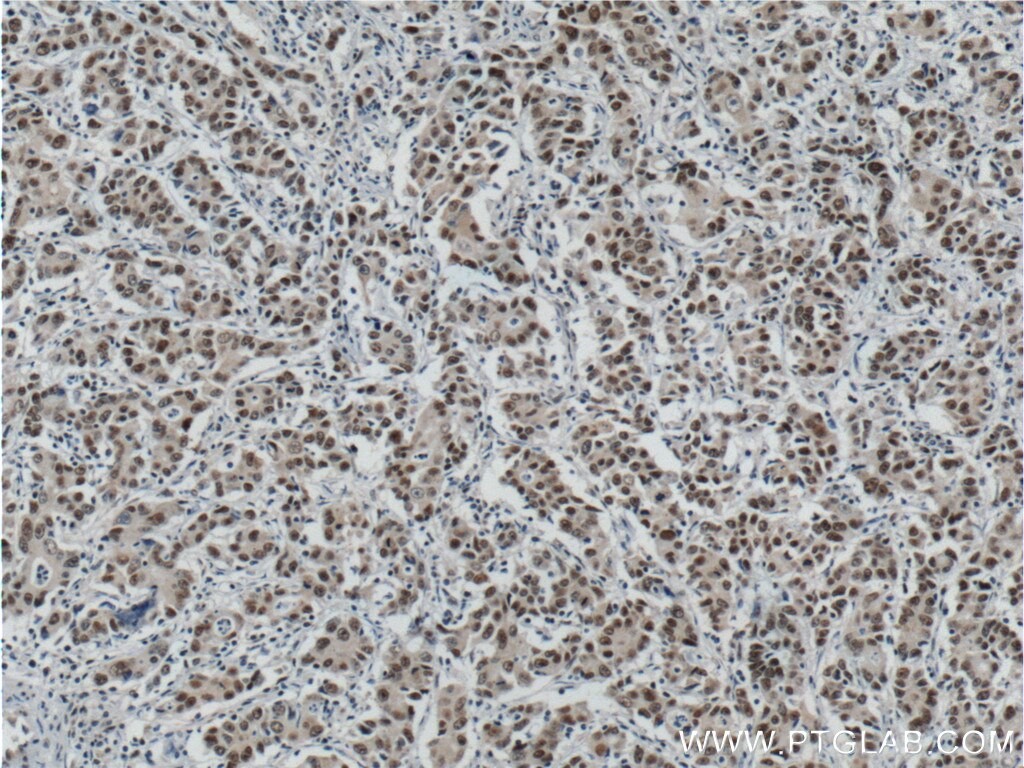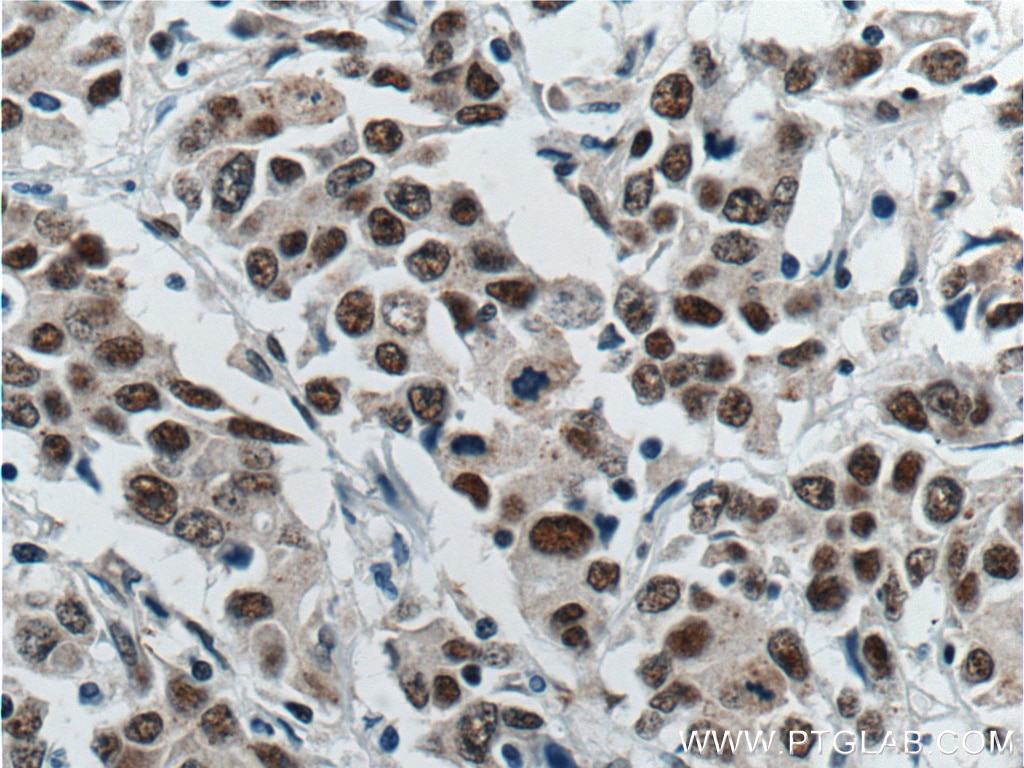Tested Applications
| Positive IHC detected in | human ovary tumor tissue, human breast cancer tissue, human stomach cancer tissue Note: suggested antigen retrieval with TE buffer pH 9.0; (*) Alternatively, antigen retrieval may be performed with citrate buffer pH 6.0 |
Recommended dilution
| Application | Dilution |
|---|---|
| Immunohistochemistry (IHC) | IHC : 1:200-1:800 |
| It is recommended that this reagent should be titrated in each testing system to obtain optimal results. | |
| Sample-dependent, Check data in validation data gallery. | |
Published Applications
| KD/KO | See 1 publications below |
| WB | See 1 publications below |
| IF | See 1 publications below |
Product Information
14699-1-AP targets ATF7IP in WB, IHC, IF, ELISA applications and shows reactivity with human, mouse, rat samples.
| Tested Reactivity | human, mouse, rat |
| Cited Reactivity | human |
| Host / Isotype | Rabbit / IgG |
| Class | Polyclonal |
| Type | Antibody |
| Immunogen |
CatNo: Ag6341 Product name: Recombinant human ATF7IP protein Source: e coli.-derived, PGEX-4T Tag: GST Domain: 756-1106 aa of BC063855 Sequence: NTATVVATTQVPSGNPQPTISLQPLPVILHVPVAVSSQPQLLQSHPGTLVTNQPSGNVEFISVQSPPTVSGLTKNPVSLPSLPNPTKPNNVPSVPSPSIQRNPTASAAPLGTTLAVQAVPTAHSIVQATRTSLPTVGPSGLYSPSTNRGPIQMKIPISAFSTSSAAEQNSNTTPRIENQTNKTIDASVSKKAADSTSQCGKATGSDSSGVIDLTMDDEESGASQDPKKLNHTPVSTMSSSQPVSRPLQPIQPAPPLQPSGVPTSGPSQTTIHLLPTAPTTVNVTHRPVTQVTTRLPVPRAPANHQVVYTTLPAPPAQAPLRGTVMQAPAVRQVNPQNSKRFFLYMAPRYM Predict reactive species |
| Full Name | activating transcription factor 7 interacting protein |
| Calculated Molecular Weight | 137 kDa |
| GenBank Accession Number | BC063855 |
| Gene Symbol | ATF7IP |
| Gene ID (NCBI) | 55729 |
| RRID | AB_2878074 |
| Conjugate | Unconjugated |
| Form | Liquid |
| Purification Method | Antigen affinity purification |
| UNIPROT ID | Q6VMQ6 |
| Storage Buffer | PBS with 0.02% sodium azide and 50% glycerol, pH 7.3. |
| Storage Conditions | Store at -20°C. Stable for one year after shipment. Aliquoting is unnecessary for -20oC storage. 20ul sizes contain 0.1% BSA. |
Background Information
ATF7IP (Activating Transcription Factor 7 Interacting Protein), also known as MCAF1 (MBD1-containing chromatin-associated factor 1), is a multifunctional scaffold protein that plays a pivotal role in epigenetic regulation and transcriptional control. Functionally, ATF7IP acts as an adaptor that recruits the histone methyltransferase SETDB1 to specific genomic loci, facilitating the deposition of the heterochromatin mark H3K9me3 and silencing target genes, including retrotransposons such as LINE1. This activity is essential for maintaining genomic stability by suppressing transposable element mobilization and preventing DNA damage.
Protocols
| Product Specific Protocols | |
|---|---|
| IHC protocol for ATF7IP antibody 14699-1-AP | Download protocol |
| Standard Protocols | |
|---|---|
| Click here to view our Standard Protocols |

